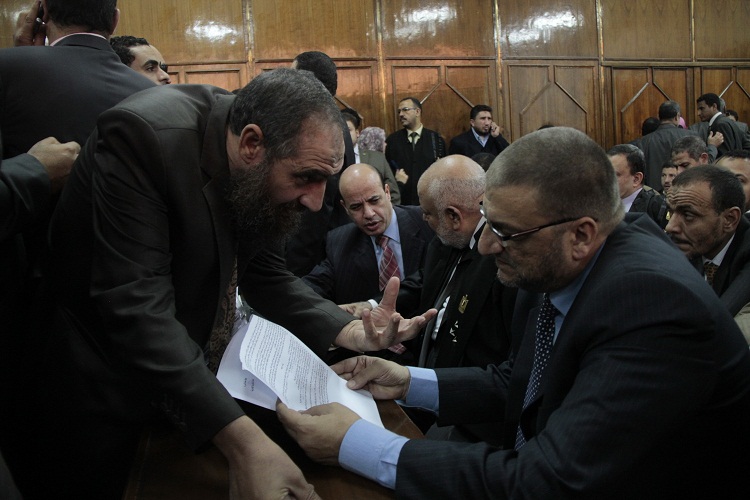Today we celebrate the 60th anniversary of the Universal Declaration of Human Rights, a document that marked a crucial turning point in human history as the first international agreement setting out freedoms, rights and entitlements for all humanity to claim.
Six decades ago, it affirmed that the force of shared ideas and a common vision of respectful and peaceful coexistence can prevail over brutality, hatred and destruction. Since then, the world may have changed a great deal, but the recognition of our inherent kinship in rights, of our common claim to a life in dignity, of our right to count and be counted irrespective of our ancestry, gender and color, status and creed applies to today’s realities as much as it did in1948.
And so does the Universal Declaration’s emphasis on the inextricable relationship between fundamental freedoms and social justice, and the connection of both these elements with peace and security. By not ranking rights, the Declaration clearly expressed the equal status of political, civil, economic, social and cultural rights, as well as their interdependence. It envisaged a world in which every man, woman and child lives in dignity, free from hunger, violence and discrimination, and enjoys the benefits of housing, health care, education and opportunity.
An extensive and growing corpus of international law has fleshed out the Universal Declaration’s principles, specifying States’ obligations in upholding them. They have found an echo in the constitutions and laws of more than 90 countries. Dedicated international, regional and national mechanisms have been put in place to be both the custodians and the monitors of human rights, their promotion and protection. Civil society everywhere exerts vigilance over rights implementation with growing capacity and influence.
There is no doubt, however, that despite all our advances in law and practice, serious implementation gaps remain in protecting people from fear, injustice and inequality.
Impunity, armed conflict and authoritarian rule have not been defeated.
Regrettably, human rights are at times sidestepped to promote short-sighted security agendas. And lamentably, a tradeoff between justice and peace is often erroneously invoked when societies emerge from conflict and combatants return to their communities.
We must take stock of the fact that racism, discrimination and intolerance represent some of the greatest global human rights challenges of our time.
Violence against women is still a daily occurrence in too many countries. In the Democratic Republic of Congo, as it is in most situations of conflict, such violence is endemic and widespread. The United Nations Security Council and international tribunals have clearly established that rape and other forms of sexual violence can amount to war crimes and crimes against humanity or may be regarded as constitutive acts with respect to genocide.
Yet such assaults often remain unpunished. Perpetrators should be brought to justice if cycles of violence and brutal retribution are to be halted.
The fact is that in too many countries, violence against women and vulnerable groups, such as indigenous people and minorities, is fostered by laws and customs that make them second class citizens and systematically discriminate against them. This occurs despite strong international standards that protect them and call for their full participation in society. It takes place despite recognition of the critical role that such groups play in building knowledge, enriching a culture with diversity and thus in fostering development, as well as peace and security.
Irrespective of gender, origin or race, communal welfare hinges upon respect and promotion of all rights, freedom and liberty, as well as economic rights, including the right to adequate food, health, housing and education.
This is why States should do more and work faster to meet the Millennium Development Goals which are eight globally endorsed objectives addressing many aspects of extreme poverty. They should do so by injecting a human rights perspective into poverty reduction strategies in order to provide a framework of institutions and norms which can help reduce disparities, address the root causes of inequality, and mediate those conflicting claims that inevitably arise through development processes.
Repression and poverty challenge us today just as they did the framers of the Universal Declaration. At the same time, daunting new challenges are emerging, such as climate change, the food and financial crises, globalization, terrorism, and new or resurgent epidemics. The sheer magnitude and the multifaceted aspects of the tasks ahead of us require collective efforts predicated on the common ground of our human condition and universal acceptance of international law.
Yet attacks on the universality of rights continue to stand as barriers to human rights implementation. Some critics maintain that the Declaration went too far in promoting the freedoms and values of liberal traditions. Others hold that its framers did not go far enough, and that liberty occupies a higher plane than material welfare.
The truth is that the Universal Declaration was not merely congruent with some customs and foreign to other cultures. It drew its principles from many diverse traditions, and it made them more robust through a uniform codification.
Rights- as well as their violations, or neglect of the obligations that those rights engender-hold the whole world in solidarity and in responsibility.
Only by attaining all our universal human rights will we be able to reach the higher standard of life and greater enjoyment of freedom that Eleanor Roosevelt and her co-drafters claimed for all of us 60 years ago.
Navanethem Pillay is the United Nations High Commissioner for Human Rights.


